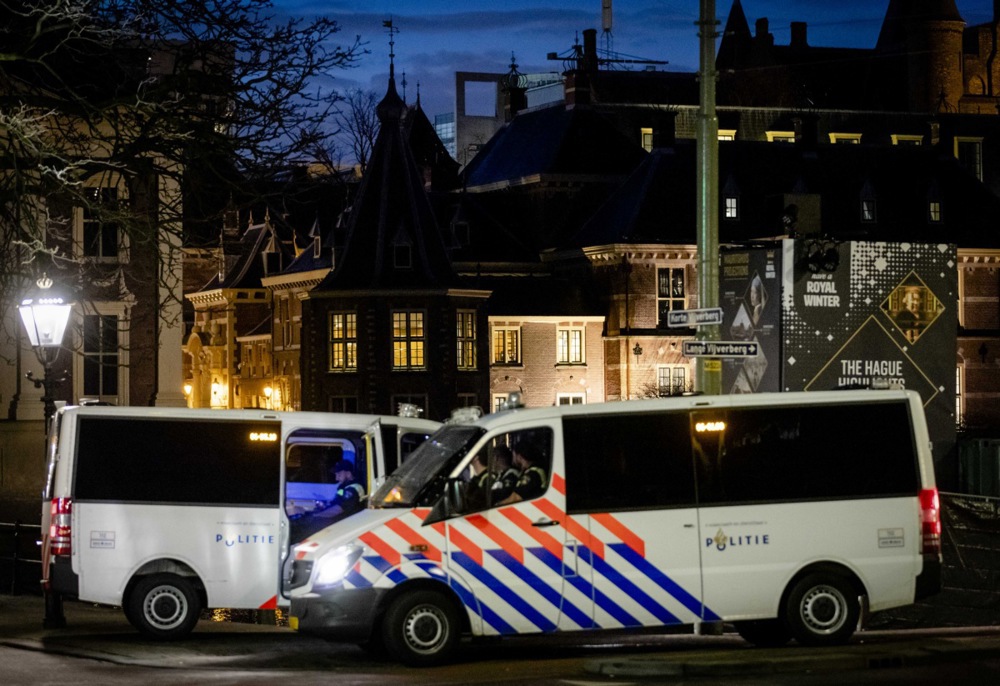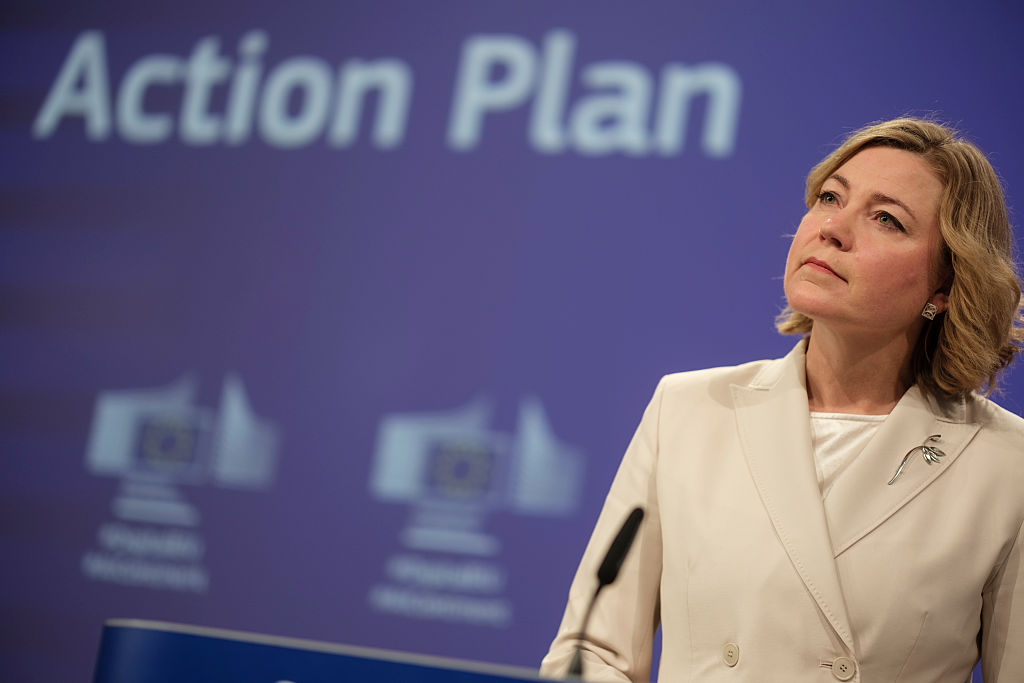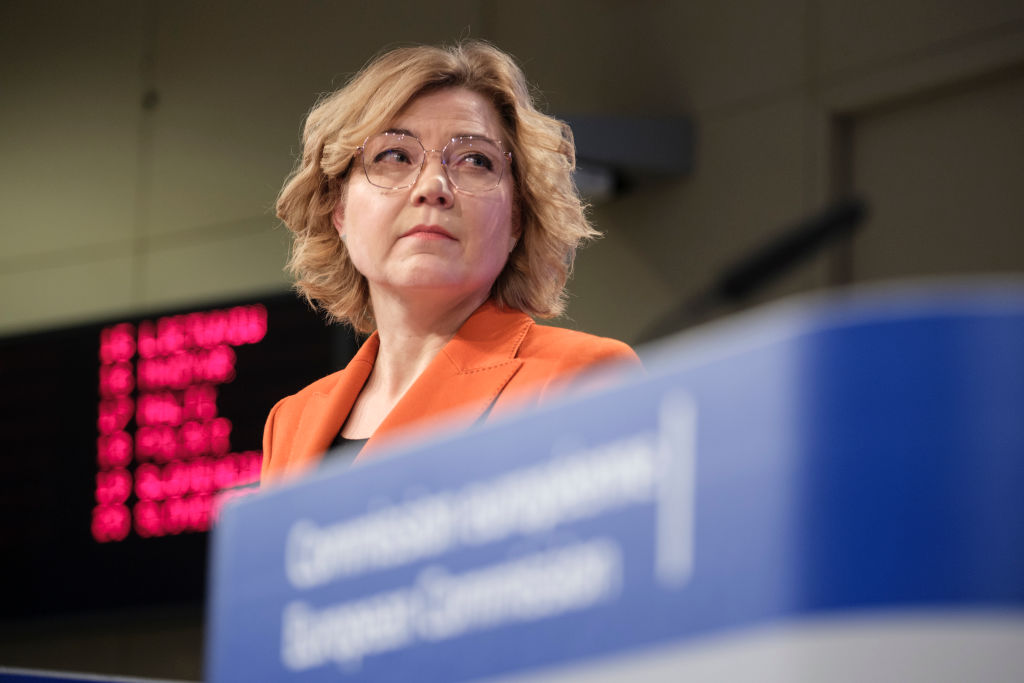The European Commission has determined Chinese-owned social-media app TikTok violated European online content rules about transparency in who pays for advertisements.
ByteDance, TikTok’s owner with its headquarters in Beijing, potentially faces a fine of 6 per cent of annual turnover if the European Commission upholds this preliminary verdict.
After an investigation it started in February 2024, the European Commission said TikTok was in breach of Digital Services Act rules that require large internet providers to publish a library of information about advertisements.
The DSA says this library should provide information about the advertisements’ content, the users who are targeted, and who paid for each advertisement.
The European Commission said TikTok did not provide all of this information–and also did not provide it, as was required, in a way that was easily searchable by the public.
TikTok can now review the Commission’s investigation file, and respond in writing to its preliminary findings.
The European Board for Digital Services will also have the opportunity to comment on the preliminary findings.
TikTok, in response, pointed towards an independent report by Mozilla and CheckFirst, which recently evaluated the ad transparency tools of 11 major tech platforms.
It found no platform fully meets the DSA’s standards yet. The same report argued TikTok has developed a relatively robust repository and Application programming interface (API), though with some gaps and inaccuracies.
According to TikTok, there was a need for clearer public guidance and consistent enforcement across the industry.
Alongside advert transparency, the European Commission investigation also looks at potential harms embedded in the design of TikTok’s algorithms—such as ‘rabbit hole’ effects the encouragement of addictive behaviour.
It also examined the app’s age verification practices, its duty to protect minors’ privacy and safety, and how it provides data to researchers.
Each of these areas remain under active investigation.
The European Commission also opened separate proceedings December 17 against TikTok over its suspected failure to limit election interference, notably in Romania’s presidential vote.
The European Commission opened formal proceedings on December 17 against social media firm TikTok over its suspected failure to limit election interference, notably in the Romanian presidential vote last month.https://t.co/LsyJs1KPGh
— Brussels Signal (@brusselssignal) December 18, 2024
“We are reviewing the Commission’s preliminary findings regarding our ad repository and remain committed to meeting our obligations under the DSA”, a TikTok spokesperson told Brussels Signal.
“While we support the goals of the regulation and continue to improve our ad transparency tools, we disagree with some of the Commission’s interpretations and note that guidance is being delivered via preliminary findings rather than clear, public guidelines. A level playing field and consistent enforcement are essential. We will continue engaging with the Commission as we have throughout this process,” said the spokesperson.
“Transparency in online advertising — who pays and how audiences are targeted — is essential to safeguarding the public interest,” Henna Virkkunen, the European Commission’s executive vice-president for tech sovereignty, security and democracy said.
“Whether we are defending the integrity of our democratic elections, protecting public health, or protecting consumers from scam ads, citizens have a right to know who is behind the messages they see. In our preliminary view, TikTok is not complying with the DSA in key areas of its advertisement repository, preventing the full inspection of the risks brought about by its advertising and targeting systems,” said Virkkunen.
However, not everyone agreed with this point of view. AfD MEP Mary Khan told Brussels Signal it was clear this is not a technocratic concern, but rather a targeted attack on digital freedom of expression in Europe.
“While US Vice President J. D. Vance was still emphatically pointing out the limits of illiberal control fantasies to the EU elites at the Munich Security Conference, von der Leyen and Co. are continuing their course as a moral censorship authority, completely unaffected. Now TikTok is also being targeted – a platform that many young people regard as a place of free expression precisely because of its unfiltered content.”
She said this was “because parties such as the AfD – like many other patriotic forces across Europe – reach millions of people on TikTok and this platform is a thorn in the side of the Brussels power cartel. This is no longer about data protection or regulation – it is about total control over information and opinion. Anyone who thinks critically is to be silenced.”
“Free speech is the Achilles heel of any free society and is now being attacked by Brussels under flimsy pretexts. We stand uncompromisingly for digital freedom of expression. The EU Commission must immediately end its ideologically motivated censorship campaign,” said Khan.
COMMENT: European elites are losing their grip on power because they have failed their people consistently for decades. That, not TikTok campaigns nor X algorithms, is the proximate cause of conservative populism’s rise, writes @henryolsenEPPC. https://t.co/wW8y4tnbbK
— Brussels Signal (@brusselssignal) January 14, 2025





